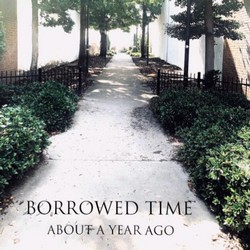“It’s not a long album—standard, really, at ten songs in 43 minutes,” I said at the beginning of the semester.
I was talking about Chvrches and their dark and horror-movie-inspired fourth studio album, Screen Violence, which dropped earlier this year on Aug. 27. And, as if on cue for the spookiest time of the year, Chvrches have released three new songs—”Killer,” “Screaming,” and “Bitter End”—as the “true” ending for the original Screen Violence; they call it the “Director’s Cut.”
The standard, red-hued, ten-songed version of Screen Violence ends with “Better If You Don’t,” a track driven by acoustic guitar and lyricism (perhaps some of my favorite lyricism on the album) which is gentler than the group’s standard more hyper electronic sound. While this is not inherently a bad thing, as I quite like the original edition with “Better If You Don’t” at the end, it left me aching for a bit more of their signature sound.
Enter “Killer.” Clearly rhetorically inspired by Alfred Hitchcock’s Psycho, frontwoman Lauren Mayberry presents the idea of the obsession killer; as her insanity reaches new heights, she sings: “I turned into a killer/I’m insane/I’ll cry you a river/Down the drain/Are you entertained?”
While “Are you entertained?” is unambiguously a reference to Ridley Scott’s Gladiator, the bulk of the song draws on the imagery of Psycho’s celebrated shower scene, in which the character Norman Bates’ obsession leads him down the path of murder. However, instead of blood flowing down the drain, the metaphor turns it into a river of her own tears.
“Killer” is a bop, certifiably, verifiably. Following “Better If You Don’t,” “Killer” is jarring, almost a jump-scare when you think all the action has subsided. But once the beat catches your ear, you’ll be singing about turning into a killer too.
The second new track to grace the back end of Screen Violence is “Screaming,” which is my personal favorite of the three.
As the faster beat of “Screaming” starts, the doe-eyed Mayberry compares herself to a deer in headlights. However, she immediately challenges this comparison; “Am I the deer?/Am I the headlights?/I know that I can’t slow down.” She actively places herself into these roles, extrapolating from them the central theme of the song; not being able to slow down and gain perspective, she questions whether the pace at which she is living her life is sustainable. If Lauren is the deer, she is facing down something which could indeed hurt or break her. If she’s the headlights, then she risks doing the same to that very deer.
“Screaming” takes words which are familiar to us and spins a yarn with it; that’s a hallmark of Chvrches’ songwriting and production. In the moment, even if one’s life is accelerating too quickly for comfort; is that necessarily negative? Mayberry, with the brand of self-reflection that so permeates Screen Violence, admits that she “should probably think less fondly on the past.”
Finally, the “true” ending of Screen Violence.
“Bitter End” takes us on a (hypothetical?) tour of Mayberry’s young mind and the thoughts racing through it: “At twenty-four/I fell into the trap door/Threw a man overboard/As I swam for the shore. At twenty-five/I noticed red in my skies/Made a bed for his lies/In the whites of my eyes.”
Here we’re presented with a dichotomy in someone’s brain. As she recollects her past mistakes, she allows us to grapple with them as well. At twenty-four, she sacrificed someone emotionally relevant to her in order to save herself; in which way is something we the listener aren’t privy to. Then, a year later, we learn that the narrator had a love, but she “made a bed for his lies in the whites of [her] eyes;” the narrator of “Bitter End” accepted a lover, but she kept every paranoid impulse on the periphery: the “whites of her eyes.”
Much like the classic horror genre that shaped Chvrches’ aesthetic on Screen Violence, the “director’s cut” allows us just a bit longer to take in the project. With a tour on the horizon, Chvrches have so clearly, time and again, proven that they are manifestly great performers; musicians who can take a concept and parlay it into a nouveau-classic take on the horror genre.
Hearing the last trio of songs on Screen Violence: Director’s Cut make the album as an electronic, Gothic whole seem even more conceptually tight than it was before. The hit-or-miss nature of rereleases/extended editions in general makes me feel just as wary as the next person; flying in the face of that, however, is the Director’s Cut. “Killer,”
“Screaming,” and “Bitter End” cap off the project in a way that makes Screen Violence as a work of art feel complete; complete enough that four-and-a-half stars isn’t enough for Director’s Cut. It’s really just that good.



